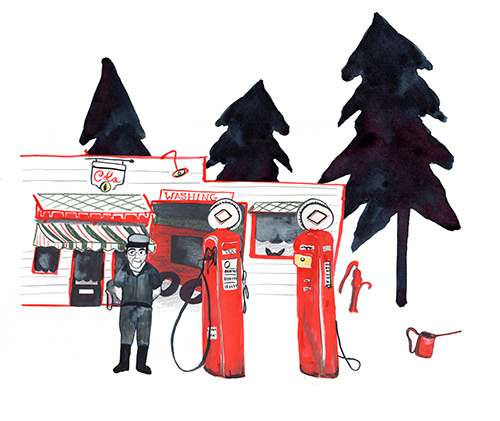The Great River Road is a small highway that runs down the southern spine of the Mississippi, snaking through farmlands and small, sleepy towns. You can find the Road by following the mournful notes of Delta blues, the sweet smell of cornbread in the oven and the wisps of cotton that drift through the air during the fall picking season. The Road has witnessed the savageries of our history: generations of slave labor, struggling sharecroppers, cycles of poverty. For me, a child of East Arkansas, the 36-mile stretch of that Road from Hughes, Arkansas, to Memphis, Tennessee, represented the most tangible break from the innocence of childhood to the realities of the present world.
I grew up in a small town where everyone knew everyone. My parents taught school there for decades, helping the older students master biology, teaching my classmates social studies and later introducing my classmates’ children to chapter books. We Delta Arkansans have our own twangy Southern accents — we can drop consonants and merge vowels in some mangled echo of English and still be perfectly comprehensible to each other. My granddaddy ran a gas station, where the men of the town would drop by for a cold Coke and the day’s gossip. Summer would mean that Mama opened the door and I could wander past the yard to build pine tree forts with the kids down the block.

This idyllic setting was held together only with the blissful blindness of a child — naïve eyes that could not see the entrenched segregation and devastating poverty. As a beneficiary of racial and economic privilege, I did not notice the all-white churches and separate seating at football games. I could willfully ignore the strange fact that some students came to school every morning for free breakfast, and others ate brand-name cereal at home and paid the full 60-cent price of a school lunch.
As a teenager, I started taking the Road daily to attend a private school in the city. My 36-mile piece of this long and storied byway took me from smooth fields of soybeans to city blocks and skyscrapers — past the shack selling fireworks and turtle meat at Greasy Corner, past the abandoned post office, past the roadside fruit stands and BBQ vendors, and over the great Mississippi River to a Catholic high school in Memphis.
In those 36 miles, I made a far longer journey. I left behind my childhood delusions of small-town harmony and finally recognized my home for what it really was — a community of contradictions in which hopes struggled to take root in economic reality, and families stayed segregated despite playing together on the jungle gym as children and learning together in the town’s one school. In exercising my opportunity to leave, I recognized my privilege and passive participation in my region’s historical exploitation and discrimination. My journey from childhood innocence to adult awareness took place over those 36 miles and hour-long drive to school every day.
Many of us grow into very different beings from the people we were in play days. In my 36-mile journey, I subconsciously suppressed my deep Arkansan drawl into a light, Southern lilt punctuated by some “y’alls” that minimizes mocking in professional settings. I listen to NPR and converse knowledgably about foreign policy. In leaving my small town, I have accomplished things my little imagination would have never dreamed of, like traveling to South America or working for the White House. However, it is my fervent hope that I maintain enough of my home to guide the person I am still growing to be — I want to face the rest of my life armed with an indignation at injustice and a killer sweet potato pie recipe.
The Great River Road winds through rolling rice fields and the most wrenching legacies of our nation’s past. For me, it is the physical manifestation of the rocky journey we all take from adolescence to adulthood and from who we are to who we aspire to be. That 36-mile stretch is a tension wire, tenuously holding together two bits of my being, a past and a future. Its landmarks remain constant and its journey defined — reference points along a life lived and unfinished.
Sarah Sibley’s essay was one of four second-place winners in this magazine’s 2014 Young Alumni Essay Contest. The Chicago resident has worked for the Congressional Hunger Center, the U.S. Congress and in the White House, and recently completed her master’s degree in public policy at the University of Chicago, where she also served as editor-in-chief of the Chicago Policy Review.